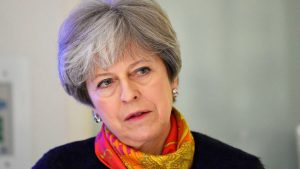


British Prime Minister Theresa May
BREXIT has already meant three years of profound uncertainty for companies in the United Kingdom. Last Thursday, the confusion was extended by another six months.
The last-minute Brexit delay granted by the European Union removes the immediate threat of a damaging break with the bloc. But it also means that some companies will further delay investment decisions.
“Sustained uncertainty is leaving business with its hands tied, reluctant to make everyday decisions on recruitment, expansion, and investment,” said Catherine McGuinness, policy chair at the City of London Corporation, which represents the financial industry.
Britain now faces a deadline of October 31 to leave the European Union, its biggest trading partner. The British Chambers of Commerce said enthusiasm among its members for the delay is limited.
“Businesses will be relieved, but their frustration with this seemingly endless political process is palpable,” said BCC boss Adam Marshall, who has compared Brexit to setting a car’s GPS system for an unknown destination.
A weak housing market, slumping autos production, declining investment and downbeat executives all suggest that continued confusion over Brexit has caused the UK economy to stagnate.
A strong labour market and robust consumer spending haven’t been enough to prevent growth from slowing. The UK economy grew 0,3 percent in the three months to February, a performance boosted by Brexit stockpiling.
Business investment fell 0,9 percent in the final three months of 2018, marking the first time investment has declined in four consecutive quarters since the global financial crisis. Surveys suggest investment took another hit in the first quarter of this year.
Companies have been forced to spend big on preparations for a disorderly Brexit, which would mean new trade barriers and major delays at border crossings.
Some companies, including drugmakers Sanofi (GCVRZ) and Novartis (NVS), have been stockpiling treatments in the United Kingdom. Some manufacturers, food suppliers and supermarkets have done the same.
EasyJet said last week that continued uncertainty was reducing demand for flights in Europe. The chief executive of Tesco, Britain’s biggest supermarket chain, said customers were showing signs of “Brexit fatigue.”
“Uncertainty has already caused serious damage — car plants are on enforced shutdown, investment has been cut and jobs lost,” said Mike Hawes, chief executive of the Society of Motor Manufacturers and Traders. “This cannot go on.”
The preferred option of some businesses would have been leaving the European Union on the original exit date of March 29 with a deal that ensured a smooth transition and close EU trading relationship in the future. – CNN
Sorry. No data so far.

